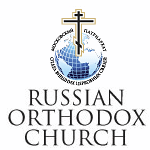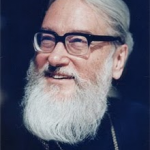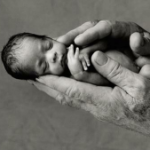Deprecated: trim(): Passing null to parameter #1 ($string) of type string is deprecated in
/home/aoiusa/public_html/wp-content/plugins/sexybookmarks/public.php on line
388
Deprecated: trim(): Passing null to parameter #1 ($string) of type string is deprecated in
/home/aoiusa/public_html/wp-content/plugins/sexybookmarks/public.php on line
394
Deprecated: trim(): Passing null to parameter #1 ($string) of type string is deprecated in
/home/aoiusa/public_html/wp-content/plugins/sexybookmarks/public.php on line
400

Out of every 100 victims of religious intolerance in the world, 75 are Christians. After the terrorist attack on 20 January 2011 in Alexandria, the European Parliament adopted a resolution acknowledging the fact of violation of the rights of Christians. Metropolitan Hilarion of Volokolamsk, in his interview to Izvestiya daily (Issue 50 (28311), 24 March 2011), speaks of the persecution of Christians today.
What is your opinion of the European Parliament’s resolution on the violation of the rights of Christians? How and why at all did it appear?
The European Parliament has adopted the Resolution on the Situation of Christians in the Context of Freedom of Religion, and the EU Committee of Foreign Ministers in its statement on February 22 expressed concern for ‘the increasing number of acts of religious intolerance and discrimination, as epitomised by recent violence and acts of terrorism, in various countries, against Christians’. These two decisions were to a considerable extent a result of the intensive efforts of Christian Churches. I should also mention the New Year message of Pope Benedict XVI who called Christians ‘the religious group who suffer most from persecution on account of their faith’. The protection of the rights of Christians is an urgent task today. The reason for the European Parliament’s resolution was the terrorist attack made at one of the Coptic churches in Alexandria on January the 1st this year.
A week after, the foreign ministers of several European states appealed to the EU High Representative for Foreign Affairs and Security Policy to react to this act of terrorism. The reaction followed in the form of this document of the European Parliament, which can be called revolutionary since the European parliamentarians finally spoke up on a problem which they preferred previously to hush up.
According to the non-governmental organization ‘Aid to the Church in Need’, out of every 100 victims killed in the manifestations of religious intolerance in recent years, 75 are Christians.
The enemy image
What has caused the violation of the rights of Christians in the countries mentioned in the resolution?
Every country has a specific character of interreligious relations. Christians used to live in most of these states for ages, even at times when local political regimes claimed to be much more radical than they are today. But in our days, when all the states are committed to the protection of human rights, the exodus of Christians from some states has only increased. In my view, this suggests a failure of today’s world policy in the area of religious freedom and a lack of interest in religious education. As a result, many draw their religious identity from setting off their own beliefs against those of others. Religious ignorance becomes a ground for cultivating hatred towards adherents to a different faith and even for calling for physical destruction. In addition, Christians have become victims of political miscalculations made by Western states. The situation is bad in Iraq. According to some estimates, a half of its 1, 4 million-strong Christian population has already left the country since 2003. Without assessing the internal political situation in Iraq as it was before the NATO interference, we can state that the affairs there had never come to the physical destruction of Christians. The foreign military invasion has made local Christians hostages to the ill-considered actions of NATO countries.
There is a grave situation in India, too. Since 2001, there have been some 130 attacks against Christian annually, and there were 149 attacks in 2010. In Pakistan, Christians often become victims of the so-called law on blasphemy which provides for capital punishment. On March 2, the Pakistani Minister for Religious Minorities, Mr. Shakhbaz Bhatti, a Catholic, was assassinated. He managed to do much for relieving the religious tension in the country, and he was not afraid of speaking in public against the initiatives of religious extremists.
Can this wave of violence be stopped?
Historically, many states including Russia claimed to protect Christian communities which lived in a minority situation. In our time, such external guarantees of the rights of minorities are impossible since they are viewed as interference in the internal affairs of a country. However, it does not give cause for refusal to support Christian communities in different ways such as raising this problem at international organizations or developing cooperation programs to foster interreligious peace in whole regions. The European Parliament’s resolution proposes a concrete action plan. It can be boiled down to the following fundamental principle: economic and financial support in exchange for ensuring human rights in the countries to which this support is given. This principle should become one of the factors in the foreign policy of Western states. The rights of Christians can be ensured only through dialogue between traditional religions both within states and on international level. That is why the Russian Orthodox Church participates in the work of the Interreligious Council in Russia and the CIS and advocates the establishment of a mechanism of dialogue between religious communities and UNESCO.
Uniting of confessions
Are violations of the rights of Christians happen only outside Europe?
Certainly, Europe does not allow of direct violence against people of any religion. However, the tendency towards secularization of the societal life has led to the emergence of political and legislative realities unacceptable to Christians. Religion is sought to be simply ousted from public domain. Let us remember the ruling of the European Court in the case of Lautsi versus Italy, which banned the presence of Christian symbols in schools. Discouraging are also attempts made by some EU states to introduce the so-call sexual education of children. Christians in Europe also see the violation of their rights in sexual minorities’ parades in Paris, Berlin and other once Christian cities. Therefore, it is difficult to speak of absolute respect with regard to the rights of Christians in Europe. So, it is a universal problem. For this reason, the Russian Orthodox Church keeps calling for an open, interested and equitable discussion on this issue.
Nobody should be lured away
What are the prospects for the joint efforts of Orthodox, Catholic and Protestant Christians in protecting the rights of Christian minorities?
Unfortunately, even some states in Western Europe today increasingly seek to restrict the expressions of Christian religiosity in public life, arguing that the rights of people of other religions and those of atheists should be respected. For this reason, Christians of various confessions need to engage in joint actions to protect Europe’s Christian identity and to defend the Christian tradition of European culture.
In case of the Lautsi versus Italy proceedings, this solidarity has led to concrete results. The Moscow Patriarchate supported the protest of the Roman Catholic Church against the court decision and contributed to Russia’s support for the appeal lodged by the Government of Italy with the Grand Chamber of the European Court. The appeal was supported by some other European states as well.
And quite recently, on March 18, this position was supported by the European Court of Human Rights in Strasbourg which ruled that crucifixes can hang in classrooms in European schools.
What is the role played by proselytism?
Proselytism, that is, luring believers away from one Christian confession to another, has long proved to be harmful for the development of dialogue between Christian Churches. In a situation where Christian have to face manifestations of Islamic extremism, solidarity of Christian, whatever Church or community they may belong to, become a vital task. Christians in the Middle East have long realized it and seek to give each other all possible help. The Middle East is the cradle of Christianity and it is very important that Christian presence should be preserved there. This can be achieved only with the help of the international community.

 Source: Mystagogy
Source: Mystagogy


